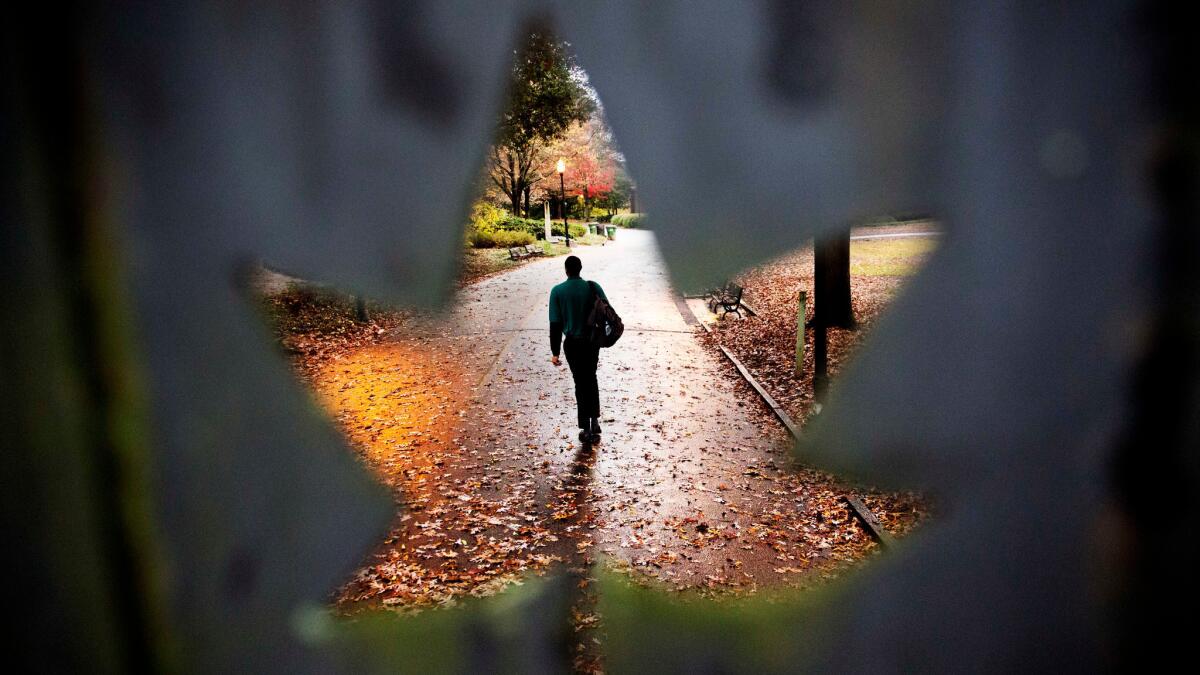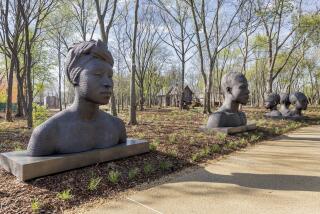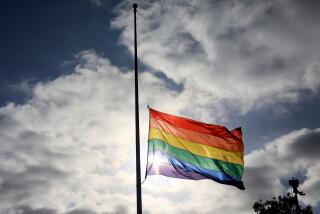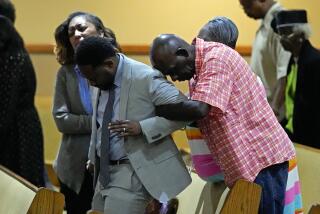Black man found hanging in Atlanta park stirs fear and ugly memories

Reporting from Atlanta — In a leafy, urban park, amid a backdrop of gleaming skyscrapers, a black man’s body was found dangling from a tree.
Police officials said the incident early Thursday in Atlanta’s Piedmont Park appeared to be a suicide. The city’s mayor, Kasim Reed, said evidence suggested “no foul play.” Yet the suspicion grew.
With African Americans across the nation on edge after consecutive fatal police shootings of black men – Alton Sterling in Louisiana and Philando Castile in Minnesota – rumor, and then panic spread. Within hours, the hashtag #PiedmontParkHanging was trending on Twitter.
“Just read that a black man was hung in Atlanta by kkk,” one Twitter user wrote. “And they’re saying it’s a suicide.”
“This was not a suicide,” another declared. “This was a public LYNCHING. AmeriKKKa”
Questions abounded on social media. How, many asked, did the man get up the tree? Would a black man, particularly in the South, willingly hang himself in such a way?
By the afternoon, the tension was so thick that Reed announced he had referred the case to the FBI.
A black man hanging from a noose conjures up the ugliest images of Southern history. This man, however, was found not in a remote, backwoods rural area of the Deep South, but in a lush, urban oasis of the relatively affluent Midtown area, home to Fortune 500 companies, tech start-ups, upscale bars and a thriving gay community.
“I feel like time is going backward rather than forward,” said Alexander Torres, a 29-year old physician’s assistant from Puerto Rico, as he walked his cockapoo around the park’s lake
“It doesn’t make sense,” he said. “I’m sorry, it’s hard getting my head around it.”
A remnant of yellow police caution tape fluttered in the thick, summer breeze as a mix of Atlantans – black and white, straight and gay – mingled in the park Friday to jog, stretch, walk dogs and push strollers. Along a nearby trail, a discarded sign, “STOP POLICE BRUTALITY,” rested on the gnarled root of a tree.
Some feared the hanging was a symbol of extreme and horrific racism, a throwback to the South’s legacy of segregationist violence. Others wondered if the reaction was an overblown, Twitter-fueled panic attack amid a jittery climate following so many police shootings of black men.
Eddy Dixon, 48, a black acquisitions business owner who lives in the nearby neighborhood of Buckhead, said he believed the hanging was a suicide. “This is generating a lot of anxiety, but I don’t feel racial hostility exists here,” he said as he gazed at a cluster of women performing yoga. “The majority of people in this state, whether in small towns or big metropolises, generally accept people quite well. The difference between now and 50 years ago — it’s day and night.”
Calvin Croom, 75, a black, retired public school teacher originally from Fairfield, Ala., was one of many who came to Piedmont Park to reflect. “I want to accept what they say, but because of where I come from, it brings back painful memories.”
Brandon Taylor, 23, an African American construction worker, nodded. “Why would you jump up on a tree and hang yourself with a rope?”
The Southern white supremacy movement is a far cry from its hey-day in the 1960s, said E.M. Beck, professor emeritus of sociology at the University of Georgia. “But it is is certainly understandable why some would see a lynching when the body of a black man is found hanging.”
According to police, a security officer discovered the man’s body with a white rope tied around his neck, hanging from a thick branch. The man had no identification but had a backpack and a single earbud dangling from one ear.
Underneath the tree, detectives reported, was a large, wheeled garbage can about three-quarters full of trash. Fresh shoeprints, which appeared to be same pattern as the Converse Chuck Taylors the man was wearing, appeared near the top edges of the trash can. The report also noted that the man had marks on his jeans and light pollen on his shirt consistent with climbing a tree.
“There did not appear to be any struggle or any foul play,” a report stated. “The scene and the body seemed to coincide with a suicide.”
At a Friday news conference, Mayor Reed cautioned those spreading social media rumors of Klan involvement at Piedmont Park the night before the hanging. “I’ve been following Internet, social media chatter, and they’re just saying a bunch of things that are not true,” he told reporters. “We have reviewed our video cameras, we have spoken to a number of individuals, and we have not found any evidence that the KKK was in Piedmont Park distributing materials.”
The practice of lynching reached its peak in the South during the 19th and early 20th centuries, and now is considered a relic of Southern history.
In recent years, several black men’s deaths, officially ruled suicides, have stoked speculation. Last year, family members raised concerns when Otis James Byrd, a 54-year-old black man, was found hanging from a tree in Western Mississippi. In 2014, Lennon Lacy, a black 17-year-old, was found hanging from a swing set in a North Carolina trailer park and, four years before that, Frederick Jermaine Carter, 26, a black man from North Greenwood, Miss., was found hanging from an oak tree.
NEWSLETTER: Get the day’s top headlines from Times Editor Davan Maharaj >>
Authorities concluded none were homicides.
Suicide, unlike lynching, appears on the Centers for Disease Control and Prevention’s list of common causes of death of black men. In 2013, suicide was the No. 3 cause of death among black men ages 15 to 24, surpassed only by homicide and unintentional injuries, according to the CDC. Among black men 25 to 34, suicide was surpassed only by homicide, accidents and heart disease.
Still, many in Atlanta – a city with a black mayor and a black police chief – admit they remain suspicious .
“I don’t know that I trust it was a suicide,” said Nick Herron, a white salon and spa manager who lives a few blocks from the park.
And yet, as he looked back up the park, he admitted he found it hard to imagine any act of violence near the “Free Nelson Mandela” monument, a sculpture of a metal railing flanked with barbed wire, erected in the park in honor of the South African civil rights icon.
“Anyone hung from a tree, particularly in the South, it’s not a good thing,” he said.
Jarvie is a special correspondent.
ALSO
After a wrenching week, a Dallas church stops to reflect
Obama urges Americans to ‘listen to each other’ and avoid heated rhetoric
Dallas police chief says shooter planned larger attacks on officers
UPDATES:
11:33 a.m.: This article was updated with a statement from the mayor of Atlanta.
This article was originally published at 4 a.m.
More to Read
Sign up for Essential California
The most important California stories and recommendations in your inbox every morning.
You may occasionally receive promotional content from the Los Angeles Times.











